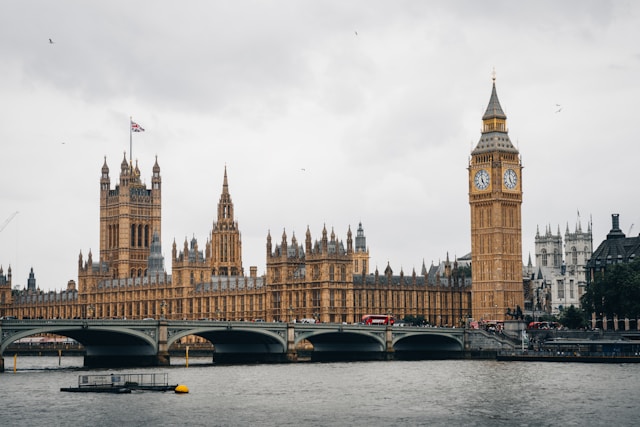
Book Review: Training Contract Handbook by City Career Series
December 7, 2020
Commercial Awareness Update – W/C 14th December 2020
December 17, 2020A Duel between: Konstantina Nouka (arguing in favour of compulsory vaccination) and Natalya McPartland (arguing against compulsory vaccination)
|
#1: In Favour The question of whether a COVID-19 vaccine should become compulsory is a question that has attracted the attention of scientists, philosophers and politicians. What is the right answer? And is there one? Yes, there is. The vaccination should be compulsory. In order to illustrate why I will put forward two simple arguments.
First and foremost, vaccines are just like seatbelts, but instead of protecting you from the damage caused by a car crash, vaccines protect you against the damage that COVID-19, or any other infectious, disease will cause to your body system. Our society has accepted having to wear seatbelts as a compulsory requirement for safe and appropriate driving because of the danger that choosing not to would cause. At present, the coronavirus pandemic has caused 1,043,812 deaths, and it will continue to kill many more people until the sufficient level of above 95% herd immunity in the population is reached. This cannot happen if the vaccine is not compulsory. Similarly, to have a moral and legal obligation to wear seatbelts to protect against the potential harm from car accidents, we have an obligation to get vaccinated in order to save the lives of others and ourselves.
The other argument is that our liberties are more in danger now than how they would be if a COVID-19 vaccine were to be made compulsory. The government has made it illegal in parts of the country to meet our loved ones, our friends and our partners. We are being pressured into staying isolated at home and not even going into work where it is not necessary in order to stop the spread of the virus. What is better and more sensible? To make a COVID-19 vaccination compulsory and get back to our normal lifestyle because the population would be immune? Or to keep living in lockdowns, families being separated and the rates of domestic abuse and suicides to keep going up and up? The answer is simple: for the benefit of wider society and future generations, the vaccination should be compulsory. |
|
#1: In Opposition I agree that vaccinations are integral to public health, particularly in such trying times. However, I think that making them compulsory is more interference with individual liberty than is necessary, and more than will be tolerated.
I admire your metaphor in regard to the seatbelts, but I don’t think it quite works. While I agree that both vaccinations and seatbelts are important to health and safety, society is well acquainted with seatbelts, and their use is second nature. It is also true that they have not always been accepted. Indeed, in the 1950s and 1960s, some people even cut the seatbelts out of their cars in protest against them. Our society accepted having to wear seatbelts decades after they were introduced, even decades after they were deemed to be necessary. We do not have decades to get the public on side with the coronavirus vaccination, and I would suggest that making it mandatory is not the best way to go about it.
You acknowledged that there have been considerable restrictions on liberty during this crisis. I would argue that this is an argument against, not for, a mandatory vaccine. Making a vaccination mandatory will make it a lot less likely to be picked up by the public. It has been made abundantly clear during this time period that the public do not take well to mandatory instruction by the government. With even masks and social distancing – both very minimally invasive and relatively risk-free – having been politicised and opposed, are we really expected to believe that a mandatory vaccination will be easily picked up and run with by the public? At what point does government interference go too far for it to be tolerated? Do we want to find out? I would therefore argue that we continue to treat autonomy as tantamount in the law and allow people to choose what to do with their bodies – albeit with considerable encouragement towards acting in their own interest, and the interest of their communities. We do not have a compulsory vaccination law in the UK – actually, in accordance with section 45E of The Public Health (Control of Disease) Act 1984 we legally cannot require a person to undertake medical treatment, including vaccinations. In a time of extended powers, I am not suggesting that a law could not be passed in order to make vaccinations mandatory, but I am putting forward the idea that there is a reason that this law exists, and we should not violate it. Autonomy underpins our entire medicolegal system, and adults – or children with Gillick competence – cannot be compelled to take treatment that they do not want, even if this treatment threatens their lives. A mandatory vaccination, therefore, may improve public health, but it would erode a principle that has been centuries in the making and cause hostility towards the government in a time where this cannot be afforded. |
|
#2: In Favour Before proceeding with a further argument in favour of mandatory vaccination, I would like to reply to the comments above. First and foremost, I do accept that seatbelts were ‘not always accepted’. However, putting that to one side, many other things were not accepted in the past that are now considered not just tolerable but a necessity. Abortion was considered a crime a few decades ago, and women voting or going into the legal profession was impossible. With that logic then, if you asked someone whether a woman can have an abortion at the beginning of the 20th century or vote, then people would consider those practices unacceptable. As society progresses and we understand how important it is to protect the human rights of the citizens, practices need to evolve as well, and one of those practices is mandatory vaccination for pandemics that cause millions of deaths.
Secondly, I would have to disagree with the idea that ‘making a vaccination mandatory will make it a lot less likely to be picked by the public’. At the moment, a quarter of the UK population lives under lockdown. Citizens in Liverpool or citizens of other parts of the North are required to not mix with their relatives and friends and live like being ‘prison inmates’ in their own homes. Pubs, bars and other facilities are closed, and thousands of people have been made redundant or even become homeless. If a person had to choose between living alone- locked up in their homes for months and months with their mental health constantly deteriorating or even becoming victims of domestic abuse (clear evidence has been produced to support all these claims), then those people would choose to get the ‘miracle solution’; a COVID-19 vaccine.
Moving on now to a further argument for obligatory vaccination. Mandatory vaccination will not only save many people from getting the disease now, but it will ensure that the disease is completely eradicated and therefore, future generations will be free from future coronavirus pandemics. A clear example of that is smallpox vaccination which managed to eradicate that disease worldwide. We own an obligation to future generations to ensure that they are safe from global disasters, like deadly pandemics, and this is why COVID-19 vaccination must be compulsory. |
|
#2: In Opposition I agree that if people had to choose between living ‘locked up’ in their homes and receiving a vaccination, they would choose to receive the vaccination, but I believe that this supports my argument better than yours. Under the medicolegal principle of least restriction, when administering treatment that will restrict the liberty of a patient, we should intervene as little as possible. It’s therefore arguable that understanding the desperation of most of the public to resume life as normal; people would choose vaccination without compulsion. There is, therefore, no reason for us to change our laws and the fundamental principles that underpin them, causing considerable distress to the public in the process.
I would have to disagree with regard to vaccinations being a ‘miracle solution.’ As you pointed out, the smallpox vaccination managed to eradicate the disease and over time and hopefully, the coronavirus vaccination will too. Equally, however, the influenza vaccination requires annual ‘booster jabs’ in order to deal with mutations. Vaccinations are, therefore, not necessarily a ‘miracle’ to eradicate the illness. If this is the case with the coronavirus vaccination, are we expected to force people into treatment against their will every single year for the foreseeable future?
Finally, I would argue that compulsory vaccination is not only unethical; it is unnecessary. Even with compulsory vaccinations, we would not reach a 100% vaccination rate once exemptions are taken into account, due to a raft of reasons, including health and religious exemptions. Moreover, herd immunity does not require a 100% vaccination rate. Many European countries generally achieve rates of well over 90% through education alone. Therefore, coupled with my first point, I am confident that compulsory vaccinations are unnecessary, particularly considering they will interfere with the rights and liberties of the general public. You argued that society’s progression allows for developments where necessary, and I agree, but this is not necessary. It can be distinguished with your examples of abortion or the women’s vote; it does not provide rights, it interferes with them. The public has been through a lot during this pandemic; we should not put them through more if we do not have to. |





